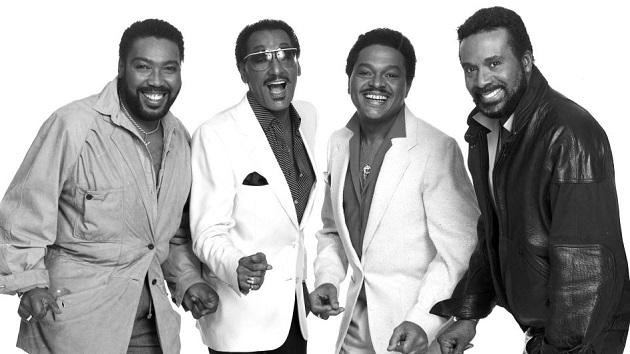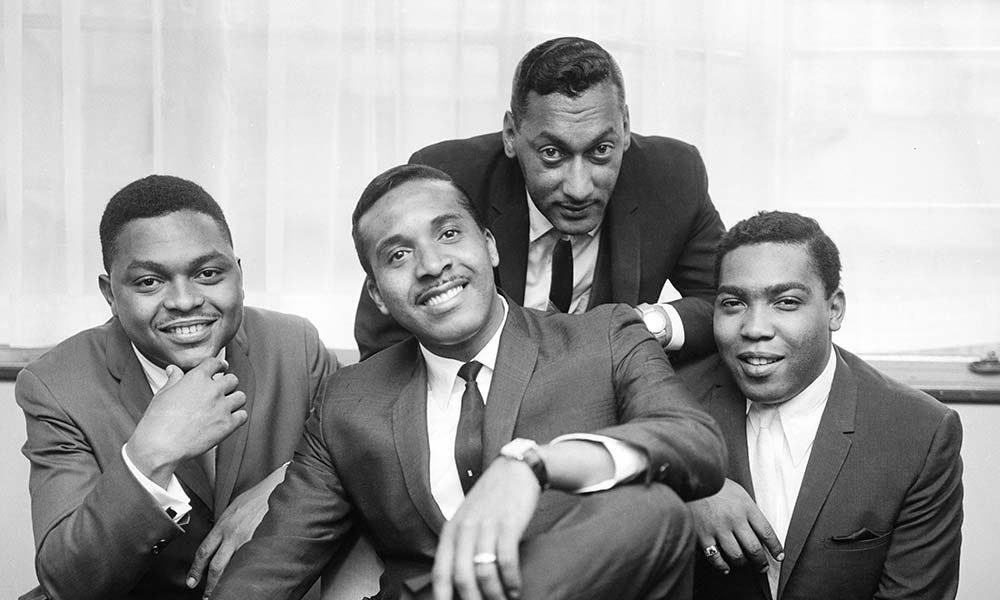
“I Can’t Help Myself (Sugar Pie, Honey Bunch)” by The Four Tops is one of Motown’s most iconic songs, a timeless anthem of love and desire that has resonated with generations since its release in 1965. Crafted by the legendary songwriting and production team of Holland-Dozier-Holland, the track is a perfect blend of soulful melodies, catchy hooks, and heartfelt lyrics. It became one of the defining sounds of the Motown era and remains a classic to this day, both for its musical brilliance and its ability to capture the complexities of romantic emotions in such a joyful yet poignant way.
Right from the opening bars, “I Can’t Help Myself” grabs your attention with its infectious rhythm and uplifting energy. The song is driven by a driving bassline and punctuated by a playful piano motif, which together create a buoyant foundation that complements the emotional urgency of the lyrics. Levi Stubbs, the powerful lead vocalist of The Four Tops, delivers the song’s heartfelt plea with a raw intensity that is both compelling and endearing. His voice carries a sense of longing and vulnerability that perfectly matches the song’s theme of being helplessly in love. The repetition of the phrase “sugar pie, honey bunch” throughout the chorus not only adds a catchy, sing-along quality but also conveys a sense of affectionate desperation.
Lyrically, “I Can’t Help Myself” is straightforward yet profoundly effective in its simplicity. It speaks to the universal experience of being captivated by someone to the point of losing control over one’s emotions. Lines like “When I call your name, girl, it starts the flame” capture that feeling of intense, almost uncontrollable attraction that can leave one feeling both exhilarated and vulnerable. This emotional duality—being overjoyed by love yet tormented by its power—is at the heart of the song’s enduring appeal. It’s a sentiment that is both relatable and timeless, allowing listeners of all ages to connect with its narrative.

The song’s musical arrangement is a masterclass in the Motown sound, featuring lush harmonies, vibrant horn sections, and a driving beat that compels listeners to move. It combines the best elements of gospel, R&B, and pop, resulting in a sound that is both polished and deeply soulful. This careful balance between upbeat musicality and emotional depth is a hallmark of Motown‘s success and is beautifully exemplified in this track. The background vocals provided by the other members of The Four Tops—Abdul “Duke” Fakir, Lawrence Payton, and Renaldo “Obie” Benson—add a rich layer of harmony that enhances the overall sound and feel of the song.
For those who lived through the 1960s and remember the impact of Motown, “I Can’t Help Myself” is more than just a song; it’s a cultural touchstone. It captures a moment in time when music was breaking new ground in both its emotional depth and its mass appeal. The track not only topped the Billboard Hot 100 but also became an anthem of its time, speaking to both the joyous and painful sides of love in a way that felt genuine and real.
Today, “I Can’t Help Myself” continues to be celebrated as one of the greatest songs of the Motown era. Its lively beat, memorable chorus, and heartfelt lyrics have allowed it to transcend generations, remaining as beloved now as it was nearly six decades ago. Whether you’re hearing it for the first time or the hundredth, the song never fails to evoke a sense of nostalgia and remind us of the powerful emotions that great music can stir. In the annals of popular music, The Four Tops and their unforgettable hit stand tall, reminding us of a time when music had the power to move both the heart and the feet with equal grace.